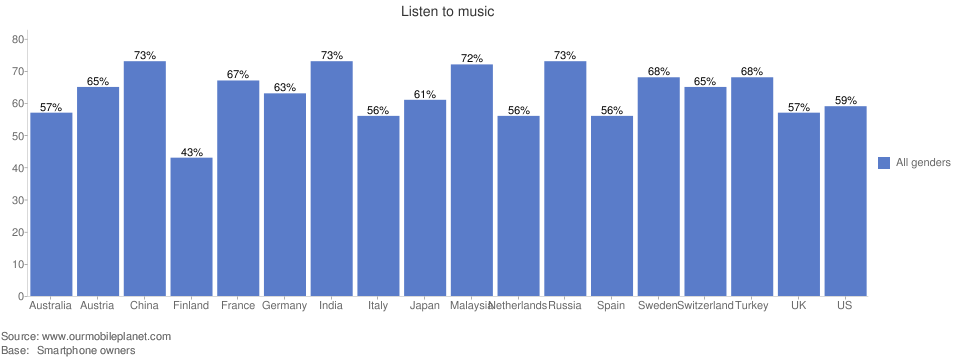Mobile Media Marketing- bring your Brand globally into the pockets of your Fans

Mobile Devices and Apps are the new star
The mobile app economy is growing faster than earlier predictions; it’s now expected to account for 98 billion downloads by 2015. Berg Insight shared the data point on Friday, suggesting that developers consider targeting the Asia-Pacific region; the research firm anticipates that this area will account for 40 percent of all app downloads in less than four years. Even with such growth, the rise of free apps will make it challenging for developers to monetize their software efforts.
Berg Insight’s expecations are more than double a prediction from earlier this year. In April, ABI Research estimated 44 billion mobile app downloads by 2016. The pace of smartphone adoption is on the rise — 75 percent of the phones T-Mobile will sell this year will be smartphones, for example and with phone sales come application downloads. As a result, I’m more inclined to buy into Berg’s higher estimates.
While both estimates look at the overall mobile application market, this dramatic growth is particularly evident in Apple’s business: App downloads from iTunes are growing far faster than sales of digital music. Horace Dediu’s Asymco blog examined the historical sales and revenue from both earlier this week, and the charts show a staggering difference in the growth rates:

Based on this data, it took less than two years from the introduction of the App Store for mobile apps to outsell digital music on iTunes on a daily basis. And since then, mobile application downloads have skyrocketed as Apple has continued to grow iPhone sales, which now account for five percent of all phone sales worldwide, according to the company. Sales of Apple’s iPad and iPod touch will also increase mobile app sales in iTunes and will also help this trend continue.
While it’s clear that mobile apps have dethroned digital music downloads because people want a wide range of functionality on their smartphones, there may be another reason for the slow rate of music downloads: subscription services. There’s a wider range of music services available now than there was a few years ago; think Spotify, MOG, Pandora, Rdio and others. Instead of purchasing an album for $10, smartphone owners can rent a month of music for the same price, giving them access to millions of songs.
This change in digital music distribution could eventually affect mobile apps. Earlier this week, references to application rentals were found in the code for the latest iTunes beta, for example. And we’ve seen plans for mobile game rentals on Google Android devices as well. If rentals and subscriptions begin to permeate the mobile app market like they have for digital music, developers will need to consider the effects and figure out how to best make money from new models.











 n
n
